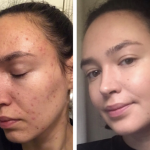How I Gained Weight On Spironolactone

What is Spironolactone?
Spironolactone is a medication used to treat certain patients with hyperaldosteronism (the body produces too much aldosterone, a naturally occurring hormone); low potassium levels; heart failure; and in patients with edema (fluid retention) caused by various conditions, including liver, or kidney disease. It is also used alone or with other medications to treat high blood pressure.
Spironolactone is used off-label in the treatment of hirsutism, female pattern hair loss, and adult acne vulgaris. Spironolactone is also frequently used for its antiandrogenic effects in transgender female patients due to its low cost and reducing male-pattern hair growth.
How spironolactone works
This drug belongs to a class of drugs called aldosterone antagonists (blockers), or potassium-sparing diuretics. A class of drugs is a group of medications that work in a similar way. These drugs are often used to treat similar conditions.
This drug works by blocking aldosterone activity. Aldosterone is a chemical made by the body that can cause water retention. This makes certain heart, kidney, and liver conditions worse. By blocking aldosterone, your body won’t retain fluid. This process also stops potassium from being excreted by your body. This drug may lower your blood pressure by blocking aldosterone’s effect on your blood vessels.
Spironolactone slows down your body’s production of androgen hormones, such as testosterone. These hormones can make the skin produce too much oil, which clogs pores and causes acne.
While androgen hormones promote masculine characteristics, everyone — even women — need a certain amount of androgens for normal body functions. But lowering the hormones down from an excessive amount can help with acne.
I gained weight while on spironolactone?
Although, spironolactone is known for triggering weight loss in patients on the medication, many people have complained that the drug causes them to gain weight. In this article, we have chronicled the stories of many patients who gained weight while taking Spironolactone.
Jillian wrote “I was on Spiro for 2.5 years for hormonal acne and hair loss. I gained 20 lbs in my stomach, boobs, hips, and thighs. I have never seen so much cellulite on my legs in my life. I’ve been off of it for about a month and I’m RAPIDLY losing the weight. I’d avoid it at all costs. Yes, it clears your skin but it’s not worth the cellulite, stretch marks, and deflated boobs. Find a topical antiandrogen if you’re having hormonal acne.”
Another user simply known as SP wrote “I was only on spironolactone for 10 weeks. I had an athletic muscular type body and permanently gained a lot of fat in my thighs, hips, stomach, and boobs. I am active and exercise as much as before, but I was never able to change my body back, even though I took it 3 years ago. I am so frustrated but I guess it’s something I’m just going to have to accept unless I ramp up the dieting/exercise to extreme levels. Boy did it clear up my skin though.”
Dupuis has this to say “Ladies, I took spironolactone about 4 years ago for only two months and the damage was extensive. I have been prescribed a low dose of 50mg to clear up my cystic acne, but it was never mentioned that it could potentially cause damage to my thyroid or cause estrogen dominance. I was 5’6″ and 130lbs. and lifted weights four times a week – I was very fit and ate well (organic, whole-foods). Two weeks into the meds, I noticed I wasn’t fitting into my clothes, everything was tight. Bottom line – I gained 15 – 20lbs in two months and my cystic acne got worse, I took myself off the meds immediately. After some trips to the doctor – derm, and gyno, they said my thyroid was low, but they were afraid to give me anything due to my last reaction. I started taking a zinc supplement and I lost about five lbs over 4-6 months. Also, this lovely med caused my skin to become so sensitive that I now have melasma on my face.”
Another user who gained weight on spironolactone wrote “This July I was prescribed spiro for hair loss and I took it for about 25 days, then immediately stopped it because I gained 10lb. I also experienced heart palpitations, HAIR LOSS and acne came back! ( I have been on birth control for 5 years with clear skin, no weight gain).
My dermatologist didn’t believe it was the spiro doing all this but I was like F*** this I’m done with the med. My blood tests showed my hormones were good before taking the spiro, so really everything pointed that the med did all this.
I am about a month off the med and still haven’t lost the extra 5 lb, but heart palpitations stopped, my hair got better, and my face cleared back to normal.
I will keep exercising like I always do and eat clean, and I believe my hormones will stabilize after stopping this weird-ass med…
No matter what I did I couldn’t lose the weight! *** Just in the last 60-90 days I have started intermittent fasting only 13 – 16 hours a day and I have now started to see massive improvements. If only I had found out about it sooner. All the docs could offer me were synthetic hormones or thyroid meds, but I was terrified to take them. But FASTING has nearly cured me and staying away from soy cured my cystic acne for good. I felt I had to post this considering I’ve tried everything else (supplements and exercise). Hope this helps someone!!”
Finally, a displeased Jennifer IP shared her experience thus “HI! I started this medication back in May 2021 for my skin and have been on it till now, recently I have been experiencing stretch marks form on the sides of my thighs over the past few weeks and my body has lost its normal curvature and flat stomach. Personally, till now, I’ve been pretty skinny and I have a fast metabolism so I’ve always been around 58 KG’s, since going on this I haven’t changed my usual diet so this occurring on my body has been a very big shock to me, as I would not expect to get stretch marks at my age. I never really had body issues before this medication, again because I was pretty skinny and nothing really affected my weight, but after a few months on this drug, it has really affected my confidence in myself and I do worry if these changes will go away when I discontinue taking this medication. I have been taking 50g 2 times a day (2 pills at night and 2 in the morning).
My acne personally has never been horrible, I just get a few bumps and red spots here and there but looking back on photos from before, I went on this really nothing much has changed (I’ve only been on it for 6 months though). It definitely did get rid of the number of pimples that appeared on my face every few days but in the long run, it didn’t do that much. But to repeat, my skin has never been cystic or dramatic in the acne sense, so going on it only to experience weight gain and see stretch marks form on my legs at 18 years of age, is not what I needed just to have the perfect skin. After reading these previous reviews, I feel the best thing is to go off this medication, especially because the dermatologist I went to did not disclose the possible weight gain I could experience. Again, especially because this medication is not specifically made for the skin. I do not recommend this considering it has been known for weight gain and stretch marks/cellulite. If you want to get rid of your acne that badly, I do recommend asking a doctor to change the medication from this one and look for safer options, especially when suffering from body confidence issues.”
Side Effects
1. High potassium levels
Spironolactone can cause high blood potassium. Your healthcare provider will likely check your potassium regularly while taking spironolactone to make sure it’s not too high. If your potassium levels rise too much, your spironolactone dose may need to be changed or stopped.
Even though this is a common side effect, it can become serious. High potassium can cause heart rhythm problems. Symptoms of high potassium can be mild and easily missed. So, it’s important to follow your healthcare provider’s instructions for getting blood tests done while taking spironolactone.
People who have health conditions that cause high potassium, such as Addison’s disease, should avoid spironolactone. This is because they’re more likely to develop severe high potassium. Some people with kidney problems may have to avoid spironolactone as well.
High potassium levels are also more likely to happen if you take certain medications. This includes common blood pressure medications and nonsteroidal anti-inflammatory drugs (NSAIDs). Make sure to discuss your current medication list with your pharmacist and healthcare provider. They’ll be able to tell you if you’re safe to take spironolactone along with your other medications.
2. Breast tenderness (males and females)
Breast tenderness is usually a mild side effect. But it can be frustrating and uncomfortable. Let your healthcare provider know if you experience this side effect. Sometimes, taking a lower dose of spironolactone will help. Other times, you may need to stop the medication to relieve this side effect.
3. More pronounced female characteristics (males)
Spironolactone can lower testosterone production throughout the body. This can cause males to develop feminine characteristics, like breast growth and hair loss. When taking spironolactone as a part of GAHT, this is an intended side effect. For people not using it for GAHT, this can be upsetting.
These side effects usually lessen or go away if your dose is lowered. There may also be alternative treatments for your condition. Let your healthcare provider know if you experience these effects and they’re unwanted.
4. Loss of libido (males)
This effect can happen due to spironolactone’s effects on testosterone. For some people, they may also experience erectile dysfunction (ED). Libido usually improves on lower doses of the medication or when it’s stopped. Your healthcare provider may also recommend ED treatments if spironolactone seems to be working well for you otherwise.
5. Irregular menstrual cycles
Irregular menstrual cycles are common when taking spironolactone for acne. This can include breakthrough bleeding, heavier bleeding, or no bleeding. This side effect is more common with higher doses.
There are a few ways to help manage this side effect besides lowering your dose. Sometimes, oral birth control pills can help regulate your cycle. Healthcare providers may also tell you to take spironolactone for 3 weeks and then take 1 week off. Ask your healthcare provider which option would be right for you.
6. Dehydration
Spironolactone helps the body get rid of fluid. But if too much fluid is lost, you can get dehydrated. Drinking plenty of water can help you avoid dehydration. But if you have heart failure, discuss how much water is safe for you to drink per day with your healthcare provider.
7. Low sodium
Spironolactone can cause loss of sodium through the urine. This can lead to low blood sodium (hyponatremia). Similar to high potassium, low sodium is a common side effect that can become serious. Sodium also helps the heart beat properly. You’ll likely have your sodium levels checked regularly with blood tests while taking spironolactone.
Depending on how low your sodium level is, your healthcare provider may ask you to make dietary changes to try to balance it out. But if your sodium drops too low, you may need to stop taking spironolactone. Be sure to go for all blood tests whenever your healthcare provider recommends them.
8. Stomach problems (nausea, vomiting, diarrhea)
Sometimes these side effects can happen from taking spironolactone on an empty stomach. Taking it with food might help. If you find stomach-related side effects to be bothersome, let your healthcare provider know.
9. Central nervous system problems
The central nervous system (CNS) includes the brain and spinal cord. CNS side effects could include headaches, drowsiness, and confusion. Some people also report they have trouble balancing or walking properly.
These CNS side effects can be scary. They can also raise your risk of falling or accidentally hurting yourself. You should let your healthcare provider know if you experience any of these while taking spironolactone.
10. Skin rash
Skin rashes from spironolactone can be mild, but they can also be severe. Severe skin reactions, such as Stevens-Johnson syndrome, can be life-threatening. If you develop a skin rash while taking spironolactone, contact your healthcare provider right away.
Conclusion
If spironolactone is causing you to gain weight, discuss it with your doctor or healthcare provider. Depending on your condition, he or she may prescribe an alternative medication. Research suggests a growing number of people take drugs that cause weight gain — most notably, for conditions that are exacerbated by excess weight. Drawing on data from the 2017-2018 National Health and Nutrition Examination Survey (NHANES), a recent study published in Obesity found that 1 in 5 U.S. adults take at least one medication that causes weight gain.
Reversing weight gain can reduce your risk of developing chronic health conditions like diabetes and hypertension. According to the CDC, even a modest weight loss of 5 to 10 percent of your total body weight is likely to produce health benefits, such as improvements in blood pressure, blood cholesterol, and blood sugars. For example, if you weigh 200 pounds, a 5 percent weight loss equals 10 pounds, bringing your weight down to 190 pounds.





